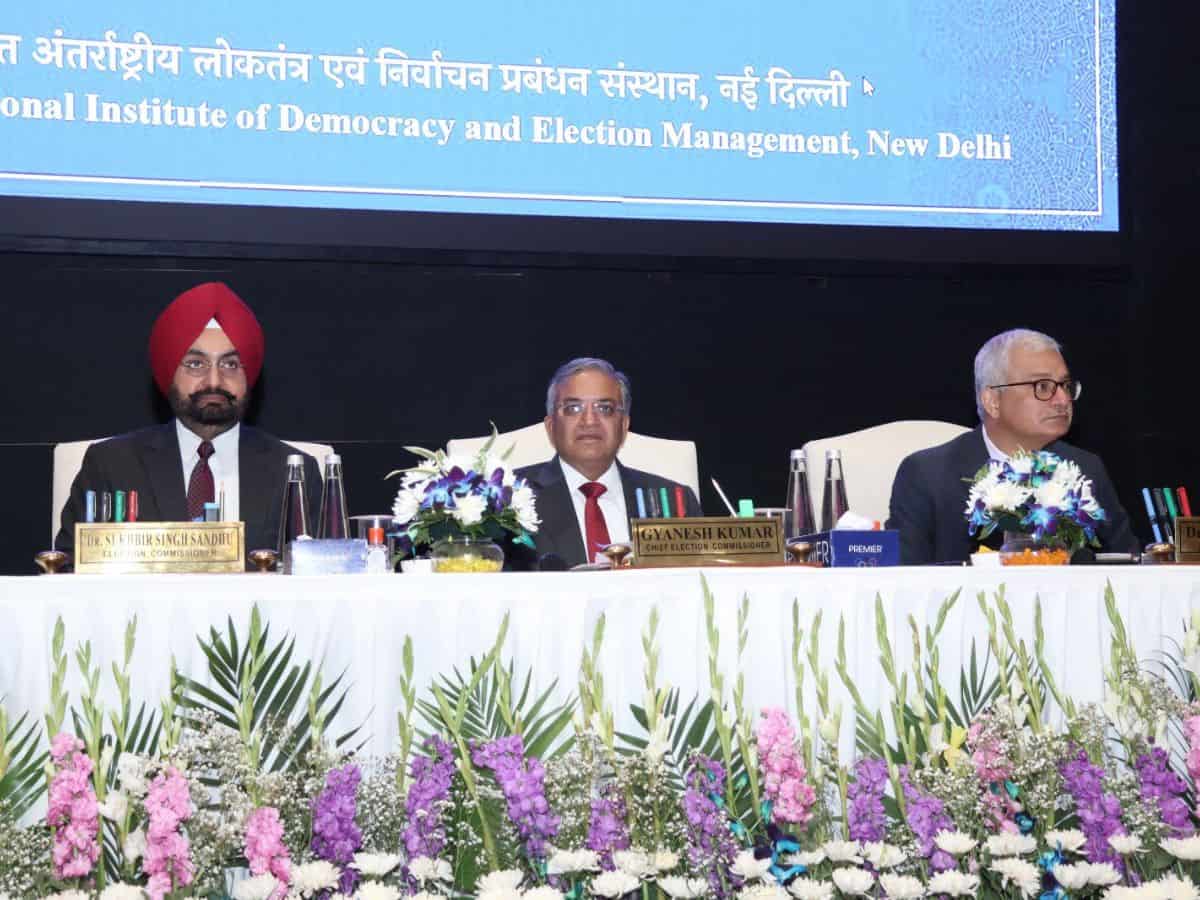
A two-day conference with chief election officers of all states and Union Territories (UTs) is being conducted on Tuesday, March 4, at the India International Institute of Democracy and Election Management in New Delhi, chaired by the newly appointed Election Commission of India (ECI) Gyanesh Kumar.
The ECI, along with Dr Sukhbir Singh Sandhu and Dr Vivek Joshi, interacted with CEOs and discussed how to improve election management within the established legal framework.
ECI Gyanesh Kumar instructed officials to conduct fair and transparent elections as per the Registration of Electors Rules, 1960 and the Representation of People’s Act, 1950.
He directed officials to hold regular party meetings at all statutory levels and resolve any issues that come up. Accordingly, the concerned state CEO should submit their report by March 21 to the deputy election commissioner (DEC).
He also stated that all states and UTs CEOs should ensure citizens above the age of 18 are registered as voters as per Article 325 and Article 326 of the Indian Constitution. The ECI directed training programmes to all booth level officers (BLOs) and ensured no electoral staff is intimidated by anyone using false claims.
“Electoral officers have been asked to provide voting facilities especially in rural areas of the country. They should ensure that there are between 800-1200 eligible voters in each polling booth within 2 kms distance from the residence of each voter,” the ECI said.
For urban areas, officials should establish polling booths in high-rise buildings and slum clusters to increase voting.
The Election Commission has mapped 28 distinct stakeholders in the entire election process, including chief election officers, district election officers, electoral registration officers, political parties, candidates and polling agents etc.
The conference aims to enhance capacity building for the 28 identified stakeholders, who have been categorized into four cohorts: Electoral Rolls, Conduct of Elections, Supervisory/Enforcement, and Political Parties/Candidates.
Each cohort is assigned to different CEOs under the guidance of the four deputy election commissioners (DECs).


